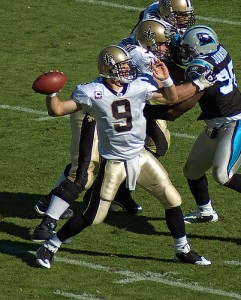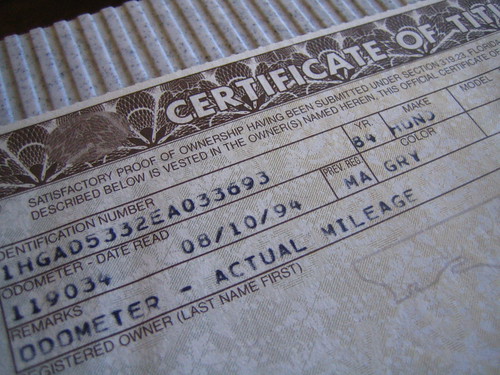In a recent interview with Parade magazine, Jay Leno talks about his transition from hosting The Tonight Show to his new prime time slot. It was a very personable interview. While most celebrities appear self-absorbed, Jay Leno comes across as a hard-working regular guy who hit the big time. But success didn’t exactly fall into his lap. Here are a few financial lessons to be learned from Jay Leno:

#1 — Finding a Job: Do Whatever It Takes
If you really want a job, do whatever it takes to make a good impression. Years ago I lived in Boston, and when I saw a Mercedes/Rolls-Royce dealer, I thought, “I’d like to work there.” I asked about a job, but the boss said, “We’re not hiring now.” Monday morning, I returned. I went to the car-wash bay, said “I’m the new guy,” and started washing cars. After three or four days, the boss saw me and asked, “What’s he doing here?” The car-wash guy goes, “He’s a hard worker.” I said, “I figured I’d work here until you hired me.” And I got the job. That attitude has always worked for me. – Parade Magazine
I first read this in disbelief. Jay’s persistence enabled him to find a job working around cars. Even if he was only washing them, he still found a way to be around something he loved. In my career path, most of the time I’ve waited for the door to be opened wide for me. If Jay Leno wasn’t kicking the front door down, he was at least sneaking in the back door.
#2 — Hard Work Pays Off
After 20 years of hard work, Jay Leno was an overnight success  In 1973, Jay opened a comedy club, and worked the improv circuit for many years. In the late 80’s, Leno began to fill-in as host for Johnny Carson on the Tonight Show, before finally replacing Carson in 1992. On top of his television show, Leno continues to do stand-up approximately 160 nights each year!
In 1973, Jay opened a comedy club, and worked the improv circuit for many years. In the late 80’s, Leno began to fill-in as host for Johnny Carson on the Tonight Show, before finally replacing Carson in 1992. On top of his television show, Leno continues to do stand-up approximately 160 nights each year!
It is easy to get discouraged in your career, and there are many ups & downs. But if you love what you do, have passion for it, work hard towards your goals, you will live a fulfilled life — regardless of how many millions come your way  I love justice and the rule of law. I studied hard in school. Jay reminds me that I need to keep working hard to find my niche.
I love justice and the rule of law. I studied hard in school. Jay reminds me that I need to keep working hard to find my niche.
#3 — Live Well Within Your Means
I know what you’re thinking: “Sure, if I had a ten-figure salary, I’d be able to live within MY means too!” But for Jay Leno, this habit began early in life.
Leno may have millions, but his approach to wealth dates to his early days turning a wrench.
“I had two jobs as a kid, one at a fast-food restaurant and one at a Ford dealership. And I’d put the money from one job in one pocket and spend it. And the other paycheck I’d save,” he says. “I do that now. I have always banked my Tonight Show money and lived off the stand-up. I have one credit card, no mortgage, and I don’t lease.” — USA Today, 7/16/2008
His frugal ways began early. He saw the benefits of training himself to save money. For teens out there, could you not do the same thing? For young singles, make the switch before you are exposed to the leveraged lifestyle of credit cards and car payments. For married couples, what can you do to begin to live off of one spouse’s income? If this seems impossible, start slow — live off of 95% of your income, then 90%, etc. Work your way into setting aside money.
#4 — Give
In 2001, Jay’s wife Mavis was on the board of Feminist Majority, and the couple donated $100,000 to their cause of educating the public on the plight of women in Afghanistan under Taliban rule. Jay has also donated for auction Harley Davidson motorcycles signed by celebrity guests who appeared on The Tonight Show. Proceeds from these auctions have raised nearly $3 million for victims of 9/11, 2004 Indian Ocean Tsunami, and Hurricane Katrina.
While this exposure and charity may financially be a drop in the bucket for Leno, my gut feeling is there is plenty set up for charities that we just are not privy to in the outside world:
Any plans for his Tonight Show windfall? Leno leans over a stack of papers, pretending they’re bank statements. “I suppose I’ll just look at the number one day and go, “Oooh, that’s pretty neat,’ ” he says. He says he has set up foundations that donate to a range of charities but then closes the book on the topic. – USA Today, 7/16/2008
What I learn here is that life is more fulfilling when you are contributing toward a cause bigger than yourself. We do that by donating time, money, and in Jay Leno’s case — his celebrity status. Sometimes these gifts are public, but many times they are private, putting priority on the cause rather than the giver. We should do what we can, and usually we can do more than we think.
#5 — Substance Over Style
His swift gait carries him past dozens of motorcycles, another longtime passion. In the mix is a new Ducati Desmosedici: The first one off the Italian factory floor went to Tom Cruise. Leno praises the bike but hastily adds he’s just borrowing this one. “I don’t really need an $85,000 motorcycle,” he says.
“These machines are really my only indulgence,” he says. “Other than that, well, I’m still the kind of guy who goes to McDonald’s with clipped-out coupons. My wife, Mavis, will take me out to a nice restaurant, but the whole time I’m going, ‘Food costs this much?’ ” – USA Today, 7/16/2008
Leno obviously has an enormous amount of income and wealth, but still has not lost that ‘regular-guy’ charm. He never let style outgrow the basic substance of a fruitful life — hard work, saving, ignoring fear. His lifestyle leaks into his television career. While other late-night hosts Arsenio Hall and David Letterman got many of the headlines and accolades from supposed hardcore fans, Jay Leno, in a workmanlike fashion, outlasted Arsenio and repeatedly obliterated Letterman in television ratings.
While I may not win any ratings battles, I took away some sound investment advice from this:
Every few months, there’s a new investment fad or get-rich-quick strategy that pops up (flip a house! buy gold!) — but ultimately, the best strategy is to diversify your investments, and go forward in a workmanlike manner. You may not always be as exciting as the fads (Arsenio), but ultimately, your returns (TV ratings) will be higher while others get caught in the crashing wave.
photo by johngulliver
Follow MyMoneyMinute on Twitter
Personal Finance
Jay Leno, The Tonight Show







![Reblog this post [with Zemanta]](http://img.zemanta.com/reblog_e.png?x-id=dd96d915-2c79-4636-9447-e9a0aacc7b9a)











Most Recent Comments